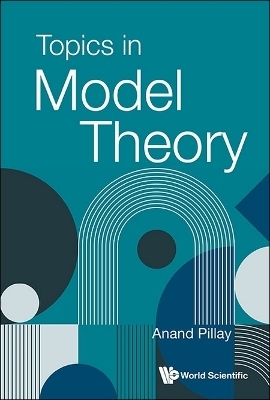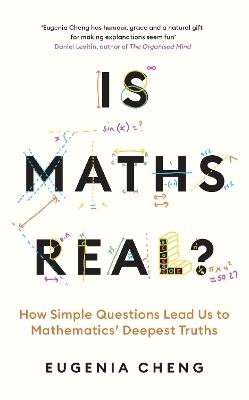
The Beauty of Mathematics in Computer Science
CRC Press (Verlag)
978-1-138-04967-3 (ISBN)
The Beauty of Mathematics in Computer Science explains the mathematical fundamentals of information technology products and services we use every day, from Google Web Search to GPS Navigation, and from speech recognition to CDMA mobile services. The book was published in Chinese in 2011 and has sold more than 600,000 copies. Readers were surprised to find that many daily-used IT technologies were so tightly tied to mathematical principles. For example, the automatic classification of news articles uses the cosine law taught in high school.
The book covers many topics related to computer applications and applied mathematics including:
Natural language processing
Speech recognition and machine translation
Statistical language modeling
Quantitive measurement of information
Graph theory and web crawler
Pagerank for web search
Matrix operation and document classification
Mathematical background of big data
Neural networks and Google’s deep learning
Jun Wu was a staff research scientist in Google who invented Google’s Chinese, Japanese, and Korean Web Search Algorithms and was responsible for many Google machine learning projects. He wrote official blogs introducing Google technologies behind its products in very simple languages for Chinese Internet users from 2006-2010. The blogs had more than 2 million followers. Wu received PhD in computer science from Johns Hopkins University and has been working on speech recognition and natural language processing for more than 20 years. He was one of the earliest engineers of Google, managed many products of the company, and was awarded 19 US patents during his 10-year tenure there. Wu became a full-time VC investor and co-founded Amino Capital in Palo Alto in 2014 and is the author of eight books.
Jun Wu was a staff research scientist in Google who invented Google’s Chinese, Japanese, and Korean Web Search Algorithms and was responsible for many Google machine learning projects. He wrote official blogs introducing Google technologies behind its products in very simple languages for Chinese internet users from 2006-2010. The blogs had more than two million followers. He received Ph.D. in computer science from the Johns Hopkins University and had been working on speech recognition and natural language processing for more than 20 years. He was one of the earliest engineers of Google, managed many products of the company, and was awarded more than ten US patents during his ten-year tenure there. He became a full-time VC investor and co-founded Amino Capital in Palo Alto in 2014 and is the author of eight books.
Words, languages vs. numbers, information. Natural language processing: from rules to statistics. Statistical language models. Chinese, Japanese, and Korean Word segmentation. Hidden Markov models. Measurement and usage of information. Fred Jelinek and modern natural language processing. Beauty of simplicity: Boolean algebra and search engines. Graph theory and web crawlers. PageRank–Google’s democratic ranking algorithm. Determing the relevance of webpages and queries. Finite state machines and dynamic programming: Core technologies of Google local search. Cosine similarity and news classification. Matrix calculation and clustering of text documents. Information fingerprints and their applications. Mathematical principles of cryptography. All that is gold does not glitter: search engine anti-SPAM. The importance of mathematical models. Don’t put all your eggs in one basket: maximum entropy modeling. The principle of (Chinese pinyin) input method editor. Bloom filter. Bayesian networks: Extensions of hidden Markov models. Conditional random field, syntactic parsing, and other applications. Viterbi and his algorithm. God algorithm: Expectation-maximization algorithms. Logistic regression and web search advertisement. Divide and conquer and Google cloud computing fundamentals. Google Brain and neural networks. The power of big data.
| Erscheinungsdatum | 29.06.2018 |
|---|---|
| Verlagsort | London |
| Sprache | englisch |
| Maße | 156 x 234 mm |
| Gewicht | 544 g |
| Themenwelt | Mathematik / Informatik ► Mathematik ► Logik / Mengenlehre |
| Mathematik / Informatik ► Mathematik ► Wahrscheinlichkeit / Kombinatorik | |
| Technik ► Elektrotechnik / Energietechnik | |
| Technik ► Umwelttechnik / Biotechnologie | |
| ISBN-10 | 1-138-04967-0 / 1138049670 |
| ISBN-13 | 978-1-138-04967-3 / 9781138049673 |
| Zustand | Neuware |
| Informationen gemäß Produktsicherheitsverordnung (GPSR) | |
| Haben Sie eine Frage zum Produkt? |
aus dem Bereich


